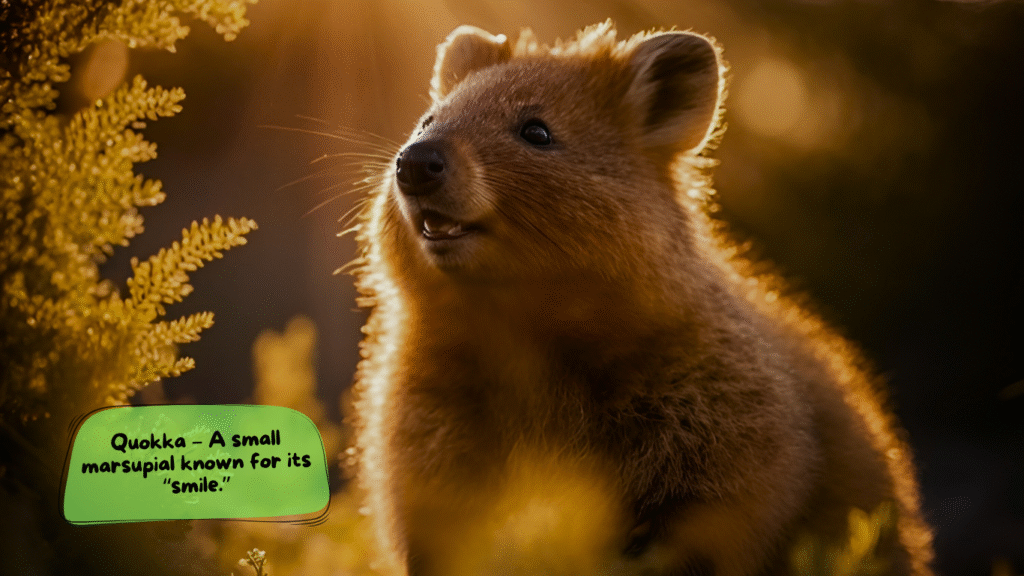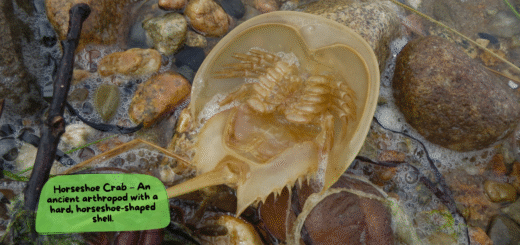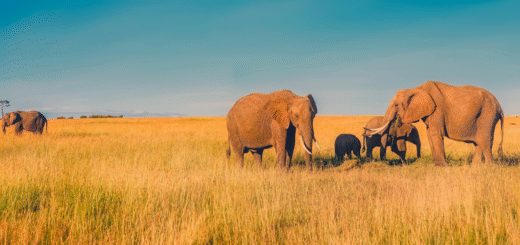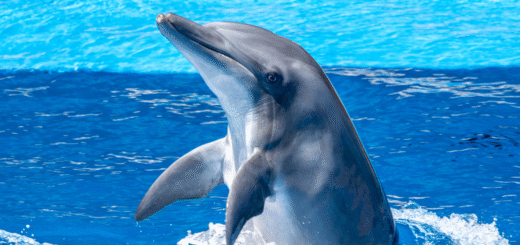Quokka: The Happiest Animal on Earth
The quokka (Setonix brachyurus) is often called “the happiest animal on Earth” — and for good reason. With its permanent smile and friendly nature, the quokka has captured hearts worldwide. Native to a few small islands off the coast of Western Australia, this tiny marsupial has become an internet sensation and a must-see for wildlife enthusiasts.

What is a Quokka?
The quokka is a small wallaby-like creature, roughly the size of a domestic cat. It typically measures about 40-54 cm (16-21 inches) in length and weighs between 2.5 to 5 kg (5.5 to 11 pounds). Its round face, short, fluffy ears, and cheeky grin make it one of the cutest animals on the planet.
Key Features of the Quokka:
- Short, stocky tail
- Soft, brownish-gray fur
- Rounded body
- Constant smiling expression
Where Do Quokkas Live?
Quokkas are mainly found on Rottnest Island, located near Perth, and Bald Island near Albany in Western Australia. They prefer habitats with dense vegetation where they can hide from predators and find food. On Rottnest Island, quokkas are free to roam and are famously friendly with tourists.
Why Are Quokkas Always Smiling?
One of the most fascinating aspects of the quokka is its adorable “smile.” This characteristic look isn’t due to happiness (though they seem very cheerful) — it’s simply the natural shape of their mouths. However, their approachable and gentle demeanor has earned them the title of the “world’s happiest animal.”
Fun Facts About Quokkas
- Selfies with Quokkas: Tourists love taking selfies with quokkas! These marsupials are surprisingly photogenic and unafraid of humans.
- Nocturnal Creatures: Quokkas are mostly active at night, foraging for food under the cover of darkness.
- Herbivores: Their diet mainly consists of leaves, grasses, and roots.
- Strong Survival Skills: In harsh conditions, a mother quokka may abandon her joey (baby quokka) to escape predators, ensuring her own survival.
Conservation Status
According to the IUCN Red List, quokkas are classified as vulnerable. Habitat loss, introduced predators like foxes and cats, and limited range have made their populations sensitive to change. Conservation efforts, such as protected reserves and breeding programs, are crucial for their survival.
How to See Quokkas Responsibly
If you’re planning a trip to meet these cheerful creatures, remember:
- Do not feed quokkas: Human food can harm them.
- Respect their space: Always let quokkas approach you, not the other way around.
- Follow local guidelines: Rottnest Island has strict rules to protect these iconic animals.
Conclusion
The quokka’s irresistible smile and sociable nature make it one of the most beloved animals in the world. Whether you’re planning a visit to Rottnest Island or simply admiring them online, the quokka is a joyful reminder of nature’s incredible charm. As adorable as they are, it’s important to protect them and their habitats to ensure future generations can enjoy their smiling faces.








